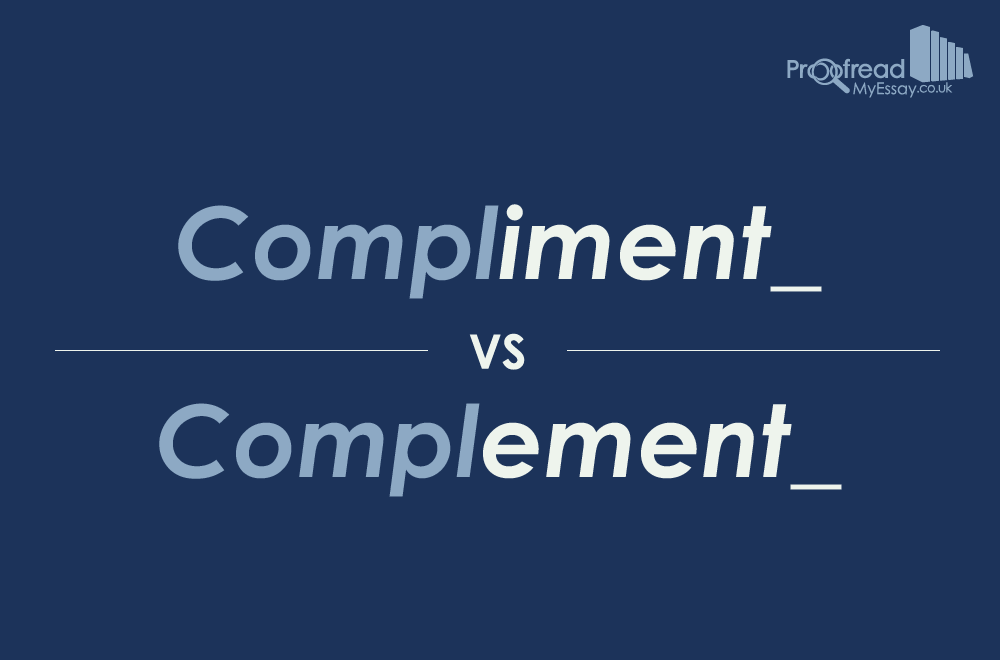Aren’t you looking lovely today! What a great outfit! Have you been working out? And so charming too! You really are something!
Those were compliments. Hopefully you receive one now and then. But the word ‘compliment’ is very similar in spelling and pronunciation to ‘complement’, which can be confusing.
So what’s the difference between these words? And how do you avoid conflating them in your written work?
Compliment and Complimentary
‘Compliment’ can be either a noun or a verb, though typically denotes an expression of praise or admiration in either case. As a noun, it refers to the praise itself:
When I said he had nice hair, I meant it as a compliment.
As a verb, it refers to the act of paying a compliment:
Her poem was really good, so I complimented her on the reading.
The adjective ‘complimentary’ has two main meanings. The first is to describe something or someone as having given a compliment:
The review was very complimentary about the performance.
The second is a tangential meaning, with ‘complimentary’ used to indicate that something is free or supplied as a courtesy:
My coffee came with a complimentary biscuit.
Complement and Complementary
The word ‘complement’ can also be used as either a noun or a verb. As a noun, a ‘complement’ is something that adds to and enhances a whole:
Find this useful?
Subscribe to our newsletter and get writing tips from our editors straight to your inbox.
The blackberries are a great complement to the apple in this pie.
Additionally, it’s sometimes used to mean the number/quantity of something required for a complete set:
The company wasn’t hiring since it already had a full complement of staff.
As a verb, to ‘complement’ means to add to or make complete:
The hat complemented the shirt perfectly.
This sense of ‘adding to’ or ‘enhancing’ is also how ‘complementary’ is used as an adjective:
Data gathering and analysis are complementary research skills.
Compliment or Complement?
The word ‘complement’ is less common than ‘compliment’, which may be why people sometimes use the latter in place of the former. But in order to express yourself clearly, it’s important to distinguish between the two:
Compliment = Praise
Complement = Add to or enhance something
The tricky one is when ‘complimentary’ is used to mean ‘free’, since this isn’t obviously a form of praise. But as long as you remember the above, you should avoid confusion in your work.



